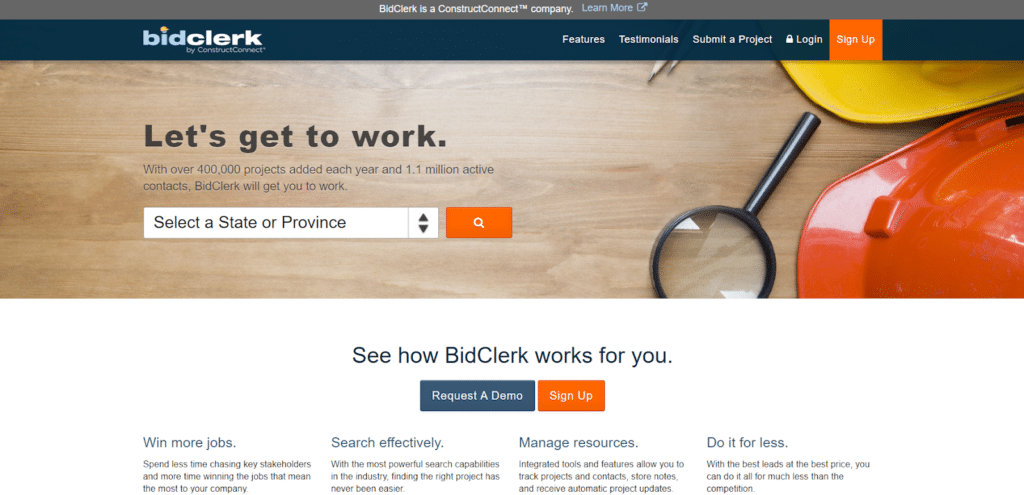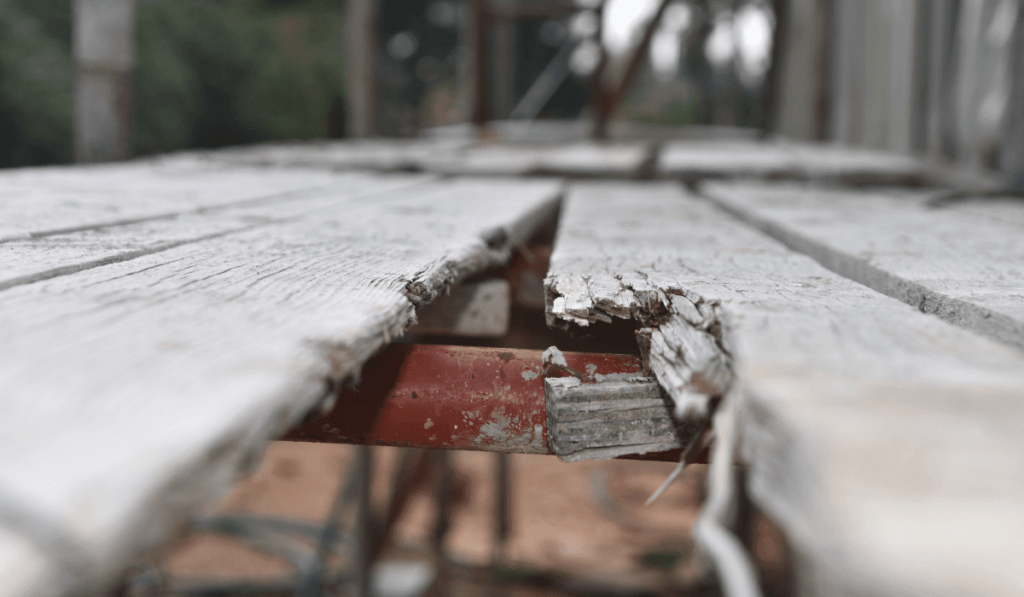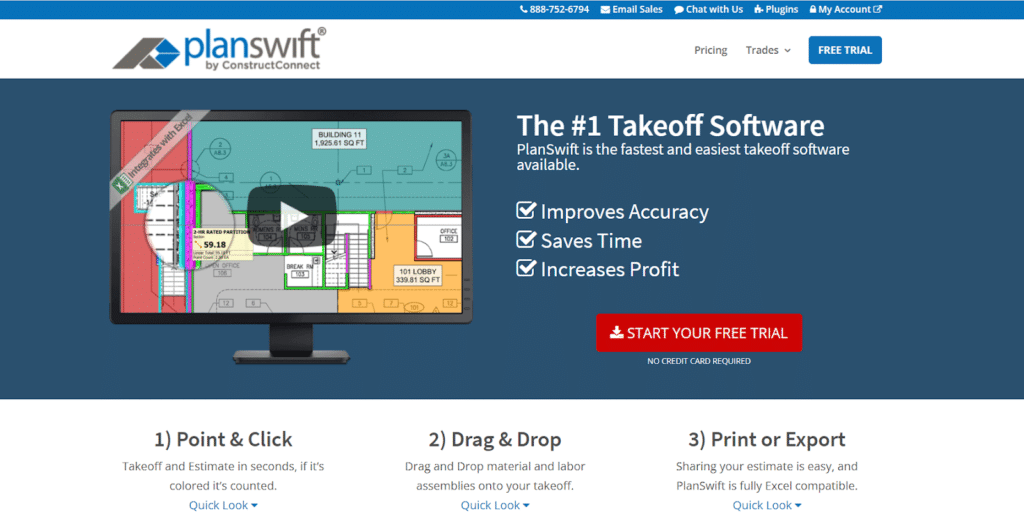How do contractors get jobs? By bidding on projects, of course.
A construction bid is an essential process for any construction company.
You’re pitching a proposal to potential clients that you want to build or manage a project for, so if your bidding documentation shows you can provide the best value, you might win it.
But while you’re an expert at construction itself, the skills required for bidding are often learned on the job. And the learning process can be very painful and costly.
It also doesn’t help that industry standards are changing and becoming increasingly complex. In the past, those who bid the lowest usually got the job.
While that may still be true for many government projects, private clients look into qualifications and other factors.
Reasonable cost and project scope assessments are essential for submitting a winning bid. So if your bid-hit ratio is low, then you might have to reconsider how you approach the entire process.
If you want to win more bids, follow our ten tips to make you the master of bidding.
In this article...
Select the Right Projects
Many inexperienced contractors think that the only way to win projects is to bid on everything that comes their way. But bidding requires a lot of time, dedicated study, business knowledge, and resources.
For example, you’ll have to learn more about the client and their expectations, the scope of the project, local regulations, and building requirements. And that is just the tip of the iceberg.
So bidding should not be done in a rush and without proper preparations. Any experienced professional will tell you that the best way to win more projects is to bid smartly.

How do you do that?
First, you should know your strengths and search for jobs that you’re genuinely qualified for.
For example, if you’ve been building family homes for ten years, suddenly bidding for a football stadium might be a wrong move. Profit margins might be tempting, but is the scope of the project something your team can handle?
Make sure to ascertain whether you have enough resources and expertise to handle a project.
If it proves to be too much for your company, sometimes the best thing is to walk away from it. You don’t want to risk making disastrous mistakes that will damage your profits and reputation.
Second, narrowing down your bidding opportunities will ensure you spend more time crafting quality proposals. You’ll be less likely to forget important documentation, and you can focus on accurately estimating prices.
Spending time bidding for five projects you’re qualified for and are likely to get is a better use of time and resources than bidding on 20 projects that are less than suitable.
Focusing on the right projects will ensure repeat business, company growth, and, most importantly, profitability.
Attend Pre-Bid Meetings
Once you decide to bid on a project, there are two things you have to do: attend pre-bid meetings and visit the site.
A pre-bid meeting might be held at the construction site so that project teams can discuss project plans, site conditions, and other relevant details.
Such meetings are the perfect opportunity to establish a relationship with your potential customer so make sure you don’t miss any of them.

In fact, sometimes pre-bid meetings are mandatory, and if you don’t attend, you might be disqualified from bidding at all.
Another advantage of being present is that you’ll get more information about the site. Paperwork can only give you a rough idea of what the conditions in the field are. It’s better to see for yourself what you’re actually going to have to deal with if you win.

Is the site too remote? Will you have to rent more equipment or hire more workers than you planned? What does the surrounding area look like?
Just by visiting the site, you’ll be able to get a better idea of additional requirements, costs, and potential complications (such as limited accessibility or lack of material storage).
In the end, pre-bid meetings and site visits help you get to know the project more closely and make a better proposal. Basically, anything that can get you an advantage is worth taking.
Submit Your Proposal Early
If submitting quality bids is essential, how is speed going to help?
While bidding is not about rushing the process and you should always put quality first, you should also strive to be one of the first bidders.
As decision-makers examine the bids, they tend to pay more attention to the first ones they receive, then as more offers come in, they develop bid fatigue. Every new bid starts to look like the last one, so they don’t engage so much with later submissions.
The first ones will stick out in the client’s mind the most, and they’re going to make selections based on those.
So, how do you get your foot in the door first without compromising quality?
The trick is in delegating responsibilities. When it comes to submitting bids, it’s good to have several people to gather important documentation quickly. Meet up with your team and create a plan on how you’ll tackle submitting the bid early.

Another thing you can do is look up online bidding platforms to find jobs quickly. You can select jobs according to your expertise or location and submit bids before your competitors. Here are several options:
Being the early bird puts you at an advantage even when you’re competing for a job against 30 or more contractors.
Be Accurate in Measurements
The saying “measure twice, cut once” is not without merit.
Making sure your numbers are correct is a crucial part of submitting a bid.
It goes without saying that inaccurate measurements can result in overestimating or underestimating construction costs, which can make you lose a bid and hit your reputation.
So, don’t be afraid to double or triple-check your numbers. You can even ask someone else to review the dimensions for you.

Another thing you should pay attention to is using correct units of measure. It’s very easy to slip up and use square feet when you should be using square meters, for instance. Incorrect scales are another pitfall that can result in inaccurate estimates.
Finally, read the instructions carefully. This helps prevent any inaccuracies when printing electronic documents and enlarging drawings.
In the end, if you want to submit quality proposals and win bids consistently, pay close attention to correct measurements.
Assess and Manage Risks
You can’t prevent risks, but you can prepare yourself if they ever occur.
Analyzing the project should help you identify potential issues that may occur when you start a project. You’ll be able to manage them more efficiently when you know what to expect.

Look into potential problem areas where risks are more pronounced.
Is the construction site in an area prone to frequent earthquakes or flooding? Are there any prominent safety issues? Can the material be delivered on time consistently? Is there a shortage of essential materials?
Furthermore, you can estimate any additional costs and downtime that might affect the project outcome. So, it’s highly beneficial to add a risk assessment report to your bid.
Once you’ve covered and prepared yourself for the most significant risks, you’ll better manage them once they occur.
Check Your Profit Margins
When you decide to bid on a project, it’s important to break down all your costs and have a clear understanding of your profit margins.
There are three main areas where you’ll need to estimate most of your costs:
- Subcontractor pricing
- Labor costs
- Equipment costs
Getting a subcontractor is tricky because you want competitive prices, but you also need quality work. Additionally, issues can arise both with people you work for the first time and those you’ve worked with for years.
The solution for requesting bids from subcontractors is to define the scope of work and set up a prequalification process.
That way, you’ll get a better understanding of the quality of their work and past performance.
When it comes to labor costs, you should take into account the local wages. They differ from state to state, and some wage laws charge double for overtime hours worked.
So, to determine your labor costs, count in hourly wage rates and the number of hours your workers will spend on specific tasks.
Finally, good operating equipment and materials are indispensable for any construction project. Costs for materials and equipment may vary, so you should always check their prices in the local area.
For example, the price of construction materials in Iowa increased 9% in 2021, while materials in Texas rose by 6%.

When you pull all the numbers together, you should get a good estimate of the project’s profitability. If it’s too low, check for possible errors in your calculations, but if they prove to be correct, consider that you may be dealing with a low-quality project.
But if you’re falling within an acceptable profit margin, then the project is likely worth the effort.
Highlight Your Skills and Qualifications
Stand out among your competitors by showcasing your value.
We’ve already mentioned that price isn’t the sole factor when owners are selecting a winning bid. When comparing two identical bids, a more experienced contractor with the required qualifications might be the owner’s preferred choice.
Also, if you’re charging more than others, you have to clearly show what the client is getting for the premium price.
Don’t be afraid to list all your accomplishments and experience in similar projects. Let the decision-makers know you’re qualified to take on their project.
Here are some other things you can put into your proposal and grab the client’s attention:
| Customer service and support | Do you provide excellent care to your customer during and after the project? |
| Quality and size of the team | Do you have the right amount of people and resources to handle the project? |
| Financial security | Do you offer flexible payment terms? Is your company financially stable? |
Remember that other factors contribute to a winning bid besides the best price. Find what makes you unique and more valuable to the client so you can show off these qualities and win more bids.
Comply With the Requirements
When you’re preparing your bid, read the client’s Request for Proposal so you can submit all the necessary documentation.
Request for Proposal (RFP) is a project announcement provided by a company or agency to contractors. It is a document that outlines the project and solicits bids to complete it.
Often, you’ll find very specific requirements regarding the project and instructions on how to submit a bid (i.e., the page count and format).

Basically, if you don’t read the requirements for the bid carefully, you’re going to fail.
Clients know what they want, and it’s always best to follow their instructions. This will show them you’re a professional that they can rely on and that you’re putting their needs first.
The RFPs should allow you enough creativity to submit a proposal without leaving out any critical information.
So if you don’t understand something, look for cut-off dates for placing questions or getting more information. Never make assumptions—you won’t win many bids that way.
To sum up, the only way you’ll know how to submit a winning proposal is to read and meet the requirements on RFPs.
Involve Technology in Your Bids
Everyone knows that manually handling sensitive paperwork is a risk. You can go over the documents dozens of times, but you can still overlook or miscalculate something important.
To avoid any preventable errors, it’s best to look into bidding and estimation software to help you with the process.
This technology will better handle all your calculations, measurements, and estimations. You’ll be able to monitor everything and make accurate changes to your bid proposals.

What’s more, you can safely store all your documents and use them as a reference for future projects. With a simple click, you can see every project you’ve ever bid on and determine your bid-hit ratio easily.
In addition, every member of your team can access the data and be up to date on your bidding process. Improving communication and sharing data among your team will significantly benefit your overall productivity.
But you know what the best part is?
With the right software, you’ll be able to determine if a project is profitable for your company faster. That way, you’ll be able to dedicate more time to chasing after quality projects that will help your company grow.
The bottom line is that implementing digital solutions will significantly improve your operations.
Make Sure Your Bidding Paperwork Is Complete
As mentioned earlier, you can easily shoot yourself in the foot if you’re not careful and fail to include all important documents in your bid package.
Ensure you’ve included documents, drawings, estimations, and specifications to submit to the client for project consideration.
Even if you craft the winning bid, it won’t matter if you’re missing a document. You’ll be immediately disqualified, so check your paperwork numerous times before submitting it. Because once you send it for submission, you can’t change it.
A good way to ensure you’ve got everything is to create a checklist and double-check you haven’t forgotten anything.
If you have bidding software, this will be done for you.
You can also consider working with an expert who will review your bid and ensure you’re meeting the requirements. Having another set of eyes that will look over your paperwork can be crucial to winning a bid.
Don’t waste all your time and effort by making a mistake like failing to submit a document or neglecting to sign your bid.
Conclusion
As the construction industry evolves, bidding becomes more complex. So it’s necessary to nail it to win more projects and keep your company afloat.
With the right strategy, you can select only projects you’re the most qualified for, which will ensure a better bid-hit ratio. That way, you’ll position yourself as a serious player in your market, and you’ll no longer have to bid to survive but bid to win.
By applying the tips above, you’ll be one step ahead of your competition, thus increasing your chances of winning more projects.





